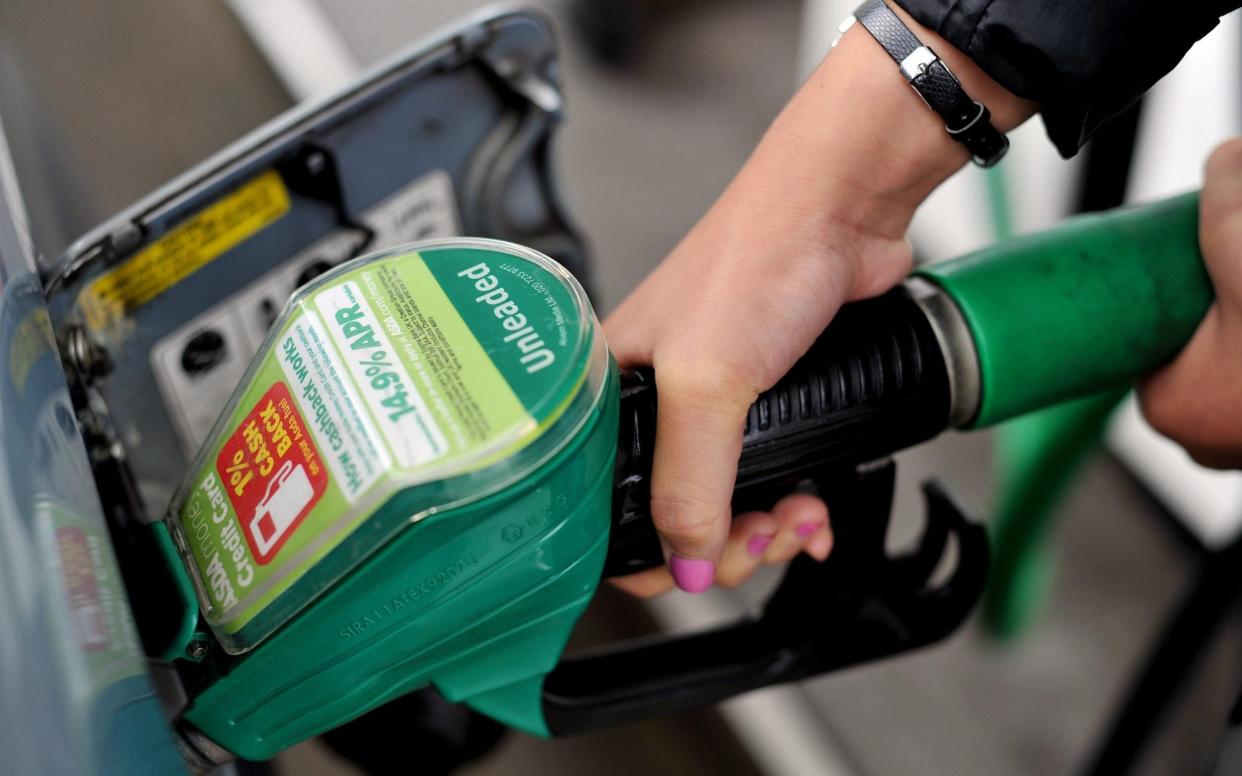Motorists hit by biggest annual petrol price hike in nearly a decade

Motorists have been hit by the biggest annual jump in petrol prices in nearly a decade as a lack of cars on the road has squeezed forecourts.
Experts said that the increase was a result of a perfect storm of lower road usage during the pandemic, with people working from home and travelling less, and the rising wholesale cost of oil.
It comes as the UK experienced the busiest weekend on the roads in the year so far, with families taking advantage of the good weather and Bank Holiday weekend as lockdown restrictions continued to be lifted.
Data tracking pump prices published by the RAC Foundation, a transport policy agency, showed that the average cost of petrol in the UK had risen by 22p per litre in the 12 months since May last year, from 107p to 129p.
The previous biggest year-on-year increase was in the year from February 2016 when pump prices increased by 18p per litre. Despite the recent rise, the current price of fuel is not the highest it has been in a decade.
A fuel spokesman for the RAC, the breakdown firm, which is separate to the foundation, said May was highly likely to be the seventh successive month of increases.
Earlier in the month it said that the cost of petrol had risen for the sixth month in a row in April to an average 127p per litre.
Although the underlying cost to petrol stations has fallen recently, he said it was unclear whether other factors might mean this will not be passed on to drivers.
“We have had six months of rising prices and we will probably have a seventh. It could be coming to an end,” he added. “But the smaller retailers have been squeezed.”
Brian Madderson, chairman of the Petrol Retailers Association, which represents independent forecourts, said the latest figures showed that car usage was still only at around 92 per cent of the levels seen in January and February 2020.
However, he said that could be an overestimate of usage given that January and February are often the quietest months of the year on the roads.
“That has really been a tough problem and we aren’t quite sure when we will see a recovery,” Mr Madderson said.
“In some ways they [petrol stations] have had no choice but to keep pump prices high. A lot of them suffered quite badly last year where in some cases fuel usage dropped to as low as 40 to 50 per cent of normal levels.
“One thing they are looking to do now is invest in electric vehicles, but if their war chest is quite thin then they can’t really put prices down.”
Meanwhile millions of families were expected to hit the road over the Bank Holiday weekend, with many areas experiencing sunny weather.
Last week the RAC predicted that 11 million journeys by car would take place over the three-day weekend. It said just one in 10 drivers had not been planning a leisure trip over the Bank Holiday.
The spokesman said: “This weekend has seen an awful lot of travel, the busiest weekend of the year so far. It remains to be seen whether [fuel] prices will go up any further.”

 Yahoo News
Yahoo News 
